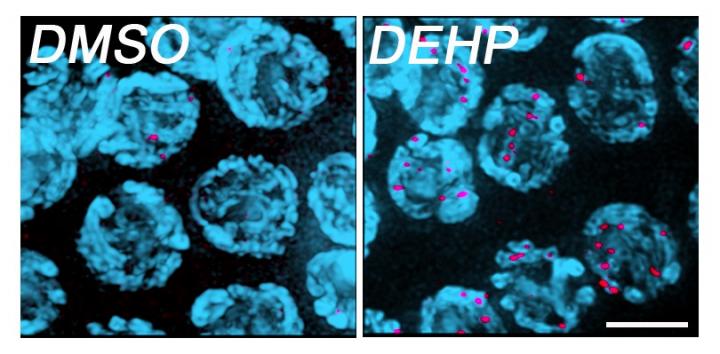Common Environmental Chemical Disrupts Meiosis to Cause Reproductive Toxicity

Researchers at Harvard Medical School and the New York State Department of Health have discovered how a common plasticizer that has been linked with human reproductive abnormalities may damage egg production at the molecular level. Studies in Caenorhabditis elegans nematode worms showed that exposure to even low levels of DEHP (di(2-ethylhexyl) phthalate) that might be found in the environment disrupted meiosis—the form of cell division that results in the production of eggs and sperm—and led to changes in chromosome structure, as well as impacting early embryogenesis. The new insights could have implications for those who are pregnant or of reproductive age, for the future regulation of DEHP and other phthalates, and for the ongoing development of “green” chemicals intended to replace phthalates.

